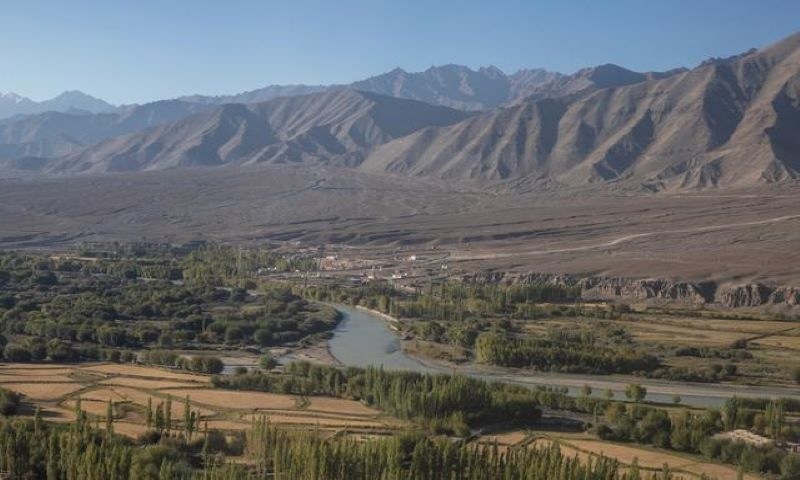UNITED NATIONS: Nearly 2.3 billion people live in water-stressed countries, which include India and Pakistan, says the latest UN report on the looming water crisis.
Globally, every two-minute a child under five dies from a preventable waterborne disease. In Sub-Saharan Africa, women and girls spend an estimated 40 billion hours a year collecting water. One in four lack access to toilets, a critical factor for overall health and sanitation.
The report titled, The State of Climate Services 2021: Water, a collaboration between the WMO, international organisations, development agencies and scientific institutions, estimates that the number of people with inadequate access to water will top 5 billion by 2050 versus 3.6 billion in 2018.
“We need to wake up to the looming water crisis,” said Petteri Taalas, the secretary-general of the United Nations World Meteorological Organisation (WMO). “Time is not on our side.”
The two countries are among 17 states where scarcity is ‘extremely high’
The report shows that climate change is also causing extreme rainfall in some areas, where they do not have the capacity to store water for later use. Both India and Pakistan are among the countries that faced massive flooding in 2020-21 due to unexpected rains.
Flooding affected the South and Southeast Asian regions particularly badly in 2020. In India, flooding was responsible for the third deadliest event of the year, costing 1,922 lives. The situation in Pakistan was equally bad.
China also faced a series of four summer floods across the country that led to the deaths of 397 people, affected 14.3 million people, and contributed to US$21.8 billion in economic losses.
Mr Taalas recalled that over the past year, extreme rainfall across the Sub-continent caused massive flooding in Nepal, Pakistan and India. Millions were displaced and hundreds were killed.
“Increasing temperatures are resulting in global and regional precipitation changes, leading to shifts in rainfall patterns and agricultural seasons, with a major impact on food security and human health and well-being,” he added.
Another report places both India and Pakistan on a list of 17 countries where water scarcity is “extremely high”. The oil-rich state of Qatar is the most water-starved country in the world followed by Lebanon, Israel, Iran, Jordan, Libya, Kuwait, Saudi Arabia, Eritrea, the United Arab Emirates, San Marino and Bahrain. India is 13th on the list and Pakistan is 14th, followed by Oman, Turkmenistan and Botswana.
According to UN water stress data, Central Asia (80 per cent), followed by Southern Asia (78 per cent) and Western Asia (60 per cent) suffers from high levels of water stress. Central Asia is one of the sub-regions with the highest water stress globally Lack of water continues to be a major cause of concern for many nations, especially in Africa. More than two billion people live in water-stressed conditions and lack access to safe drinking water and sanitation. Overall, water-related hazards have been increasing in frequency for the past two decades.
The report contains good news as well, noting that “most nations (appear) determined to improve the way water is managed”. The United Nations Framework Convention on Climate Change (UNFCCC) reports that water is a top adaptation priority in the vast majority (79 per cent) of Parties’ Nationally Determined Contributions (NDCs) to the Paris Agreement.
The latest Intergovernmental Panel on Climate Change (IPCC), whose findings included in the WMO report, warns that catastrophic heatwaves, droughts and flooding will increase in frequency and severity if the international community fails to act now.
Overall, more than 300,000 people have been killed by floods and more than 700,000 by droughts and their impact on food production, the WMO said.
Published in Dawn, October 7th, 2021















































